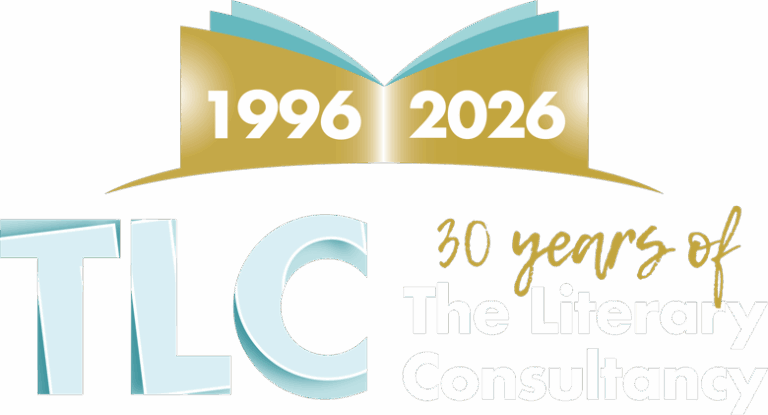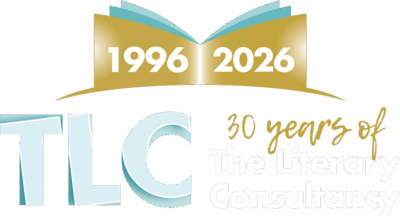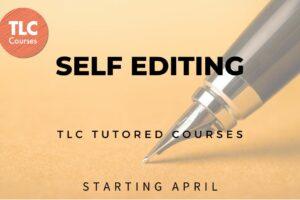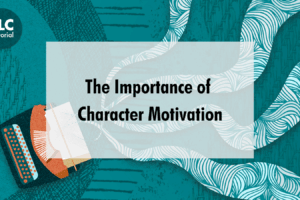How to fall in love with writing again
We’ve all heard of a reading slump – that moment when you lose all enthusiasm for reading, and every book seems to end up on the Did Not Finish pile. But what happens when you’re in a writing slump? You feel under pressure to write, or perhaps you even really want to write, but the motivation just isn’t there and – more importantly – the joy is gone. When someone asks you about your writing, instead of answering enthusiastically you shrink into yourself.
If you’ve ever felt this way, the big question is: how to fall in love with writing again?
If this sounds familiar, don’t worry. All writers are likely to experience writing slumps at some point! If you’re in a similar spot right now, we’re here to help.
Check in with yourself
Sometimes, a lack of purpose, listlessness, apathy, or disengagement can be signs of something deeper going on. Most importantly, check in with yourself about how you’re feeling. How is your mental health? Not even the best productivity hack in the world can help you to ‘get over’ depression, and writing is not a magic cure-all. Give yourself grace. And check in with a professional if you need: that might be your GP, a licensed therapist, or a mental health advice line like the Samaritans.
Whilst they are not substitutes for professional diagnosis, you can find some simple self assessment tests online here. The most important thing is that you look after yourself, and know the warning signs of depression, or burnout. You can’t write from a place of depletion.
Stop trying to productivity-hack
There is so much pressure on writers to find the perfect fix to ‘finding time and space to write’ (which consistently features in the top three barriers writers face when we ask our membership, and is the reason we have a gentle self study course on this exact topic!). You cannot hack your way into the perfect writing routine. There are no cheat codes. And, it’s not the right starting point. What we want to get to is the heart of why you are feeling so disconnected from your writing.
Is it that the ideas are there but you can’t put them onto the page?
Is it that the ideas themselves are elusive and you can’t seem to find new inspiration?
Is it that you have brilliant ideas and start strong, but then you simply run out of steam?
Start by identifying the problem instead of trying to jump ahead. Put the Post-its, spreadsheets, and debit card down for a moment and ask yourself: where, exactly, is the block? You’ll be one step closer to identifying the right solution towards a more easeful creative process.
Reconnect with joy
Think back to a time when writing, or something writing related, brought you joy, or comfort, or both. Perhaps what comes to mind is a children’s book you always loved to read, or have read to you. Perhaps it’s the memory of a particularly good writing session you had in that one café when the afternoon light was just right and the croissant was particularly fluffy.
What about this memory can you recreate to get back in touch with associating your writing practice not with tension, but with joy and ease? Can you revisit the cafe? Ask a treasured friend to read that children’s book to you? Write a thank you letter to that one teacher who really believed in you? (even if you don’t have an address to send it to).
Set a micro task
Sometimes when we feel like we’re failing, we need to remember we’re just not moving forwards in that moment: and it’s OK to be in statis if we need to, for self preservation, for respite, or for thinking time. We’re not actually failing as writers, or as human beings. So, as well as considering why you’re stuck (do I need to reset? Pivot? Find courage?), try to set a tiny task that you know you can achieve to give yourself a reliable small dose of dopamine. But make sure it’s not directly about writing output. So, not, ‘write a scene’, not even ‘write a haiku’ or ‘brainstorm my plot’. It needs to be writing adjacent, and it has to centre you, not your writing. Notice, we’re not calling this a ‘goal’. Here are some examples:
I Am A Writer. Write ‘I am a writer’ on a piece of paper several times, in different colours or using different fonts and styles. Cut the words out and place them into your notebooks and journals at random for beautiful future reminders.
A week of micro-reading Select 7 books or texts you love, and fill a jar with numbers 1 through 100. Each day for 7 days, pick a number between 1 and 100, and read only the page this corresponds to in a book on the pile. You can adjust this and do it for a whole month or longer, but we’ve suggested 7 as a sustainable and realistic number – this will also help you to see this as a creative kickstart.
Easy research Pick a topic that’s related to something you’re writing about, or would like to write about. Make it really simple, like a single time period, place, or person. Find ONE research task around that thing that will take you no longer than an hour to complete. So for example, buy a mini travel guide to Cuba and flick through it, set a timer to spend 30 minutes looking up images of fashion in the 1880s, locate and read one news article that relates to that case you’ve always been curious about.
By taking the pressure of output-based goals that hinge on you actually writing (the thing you are not ready for jus yet), you are more likely to build a really good and solid baseline from which you can build a healthy writing process. You can’t expect flowers to grow in abundance in barren soil. So, let’s fertilise!
Collect glimmers
Feeling disengaged can sometimes mean that our senses become muted. If writers are magpies – alert to all of the glittery beauty of the world – when the world goes mute it can be hard to find any inspiration. It’s time to reawaken your senses and bring some colour back into your life. In psychology, the opposite of a ‘trigger’ (an associative prompt to a negative emotion) is a ‘glimmer’. What are your glimmers? The glint of sun off running water? The powder on a Jelly Bean? The trill of birdsong while you enjoy an early morning cup of strong coffee? The smell of freshly cut grass? It’s time to start collecting the beauty, so that your stores are full when you hit another plateau.
Measure joy, not word count.
Write happy, write well. The tortured artist is a myth of the past. Let’s burst into the future together, more resilient and creative than ever before, and bring the world what it needs: our very best selves, and our very best writing.
Enjoyed this article? Then do have a look at Amplify, our group coaching programme that centres YOU as a writer and uses strength-based methods to help you move past blocks and into a more easeful creative state. We are starting our next cohort this September.









One Response
This arrives on a day after I spent two hours rewriting one paragraph of a perfectly decent blog piece I wrote nearly two months ago, which I felt I needed to connect somehow to the present moment. I pulled it inside and out , trying to make connections with the ‘now’ but gave up, and felt defeated.
A range of circumstances mean my sleep is really disrupted, and concerns about the health of close family members make writing feel like an indulgence.
So the idea of small tasks – especially the micro-reads idea which I absolutely love! – really speaks to me right now. As for ‘glimmers’ – I’m enriched by those every day 😊